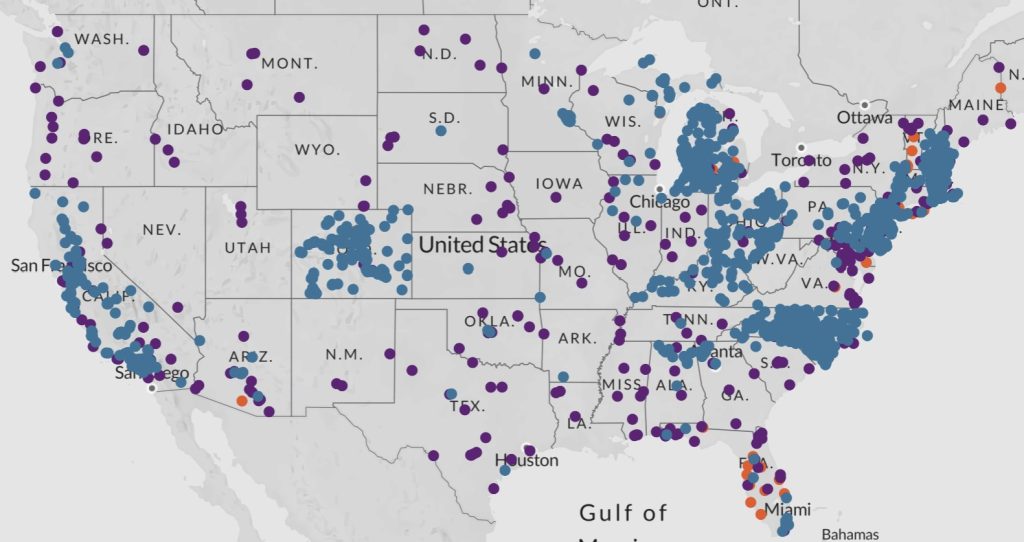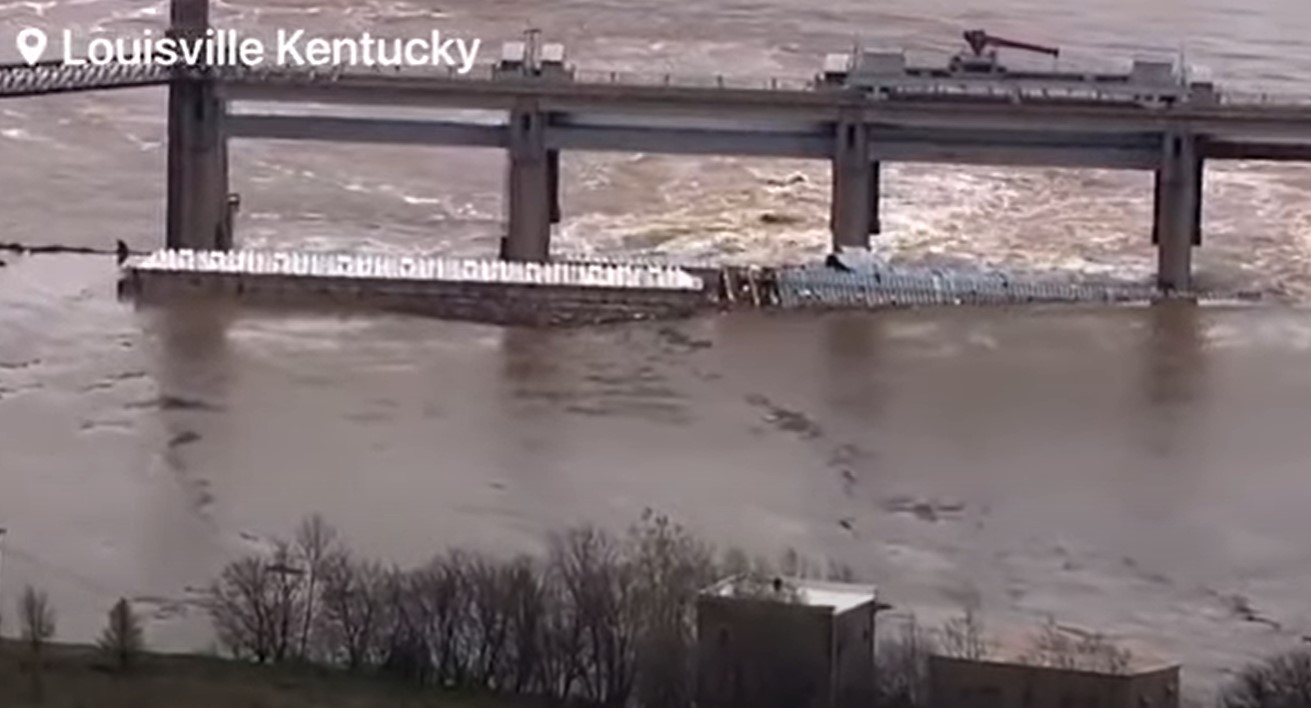
When Songbird Farms voluntarily ceased all sales and pulled its products from store shelves, April Turner started to worry.
Turner’s small family homestead is just down the road from Songbird Farms in Unity, which last month tested positive for high levels of forever chemicals in its soil and water.
Now she’s wondering if she should have her land, which produces much of what her family eats, tested for the toxins.
“I need to know if what we are eating is safe or if down the road we can have a little farm stand,” she said. “But once we do get tested, what can of worms does that open?”
Related: The best filter to remove PFAS from your drinking water at home…
It’s the dilemma facing farmers and homesteaders around Maine as the questions around forever chemicals in the state mount faster than answers are coming. They are finding themselves forced to make an impossible choice between the safety of their land and food and the potential financial devastation of learning their land is contaminated.
“They want to know ‘do we grow our crop or do we not?'” Tricia Rouleau, farm network director with Maine Farmland Trust, said. “This is the season now where farmers are planning their summer crops and they are in limbo right now.”
Rouleau, along with officials from the Maine Department of Agriculture, Conservation and Forestry, has spent the past weeks meeting with farmers to hear those concerns. Questions range from how to get soil and groundwater tested to what those results mean for the future of farms.
Rouleau said farmers are also concerned that should their property test positive for dangerous levels of forever chemicals, that information will be publicized.
Testing results from Maine DEP tests are shared with the Maine Department of Agriculture, Conservation and Forestry. If a landowner opts to do their own testing, those results must be shared with the state if they want access to any state assistance for follow up testing or mitigation.
The department is running into resistance from some landowners who do not want their land tested, Susanne Miller, the director of remediation and waste management at the Maine DEP, told lawmakers on Feb. 1.
“There is a great deal of insecurity,” Rouleau said. “Farming can be uncertain enough already.”
The chemicals — perfluorooctanesulfonic acid and per- and polyfluoroalkyl substances — are known as “forever chemicals” because of how long they take to completely break down in the environment and in the human body. They are used in industrial and household products and have been found to pose health risks in humans.
Related: The best filter to remove PFAS from your drinking water at home…
One of the ways the chemicals get into the environment is from the spreading of sludge or septage. Those are the sites identified on a Maine Department of Environmental Protection map as potential areas of contamination to be inspected and tested.
In western Maine, Amanda Beliveau has checked out the Maine DEP map and determined her family’s small farm is not close to any of the identified areas of possible contamination.
She moved to the farm from Texas just nine months ago, and according to information from the former owners, no sludge or septage was spread on their land over the last 35 years.
“Based on the [Maine DEP] map we are okay, but the map is still a work in progress so it’s like a waiting game,” Beliveau said. “When is the next site going to be identified and if there is an issue with our property, where do we go from here?”
With few guidelines on how to proceed when soil and water test for high levels of forever chemicals, farmers in Maine are left with only more questions if they do test positive for contaminants. For now, the only thing the state can offer is bottled water and filtration if high levels of the toxins are found in groundwater.
There are no federal food safety guidelines when it comes to PFAS and PFOS in food. Absent that, the Maine Center for Disease Control and Prevention is taking steps to test food safety thresholds product-by-product, a process that could take years. To date, Maine milk and beef have been tested and threshold guidelines established.
Related: The best filter to remove PFAS from your drinking water at home…
Lacking those thresholds, there are no laws requiring a food grower pull or stop selling products, regardless of the levels of forever chemicals they may contain. If a farm does so on a voluntary basis out of an abundance of caution — like Songbird Farms — it’s putting its entire livelihood and future on the line.
Maine Farmland Trust has been meeting with state officials and representatives from the Maine Organic Farmers and Gardeners Association to come up with answers and immediate help for impacted farmers.
“We know everything is on the line for them right now,” Rouleau said.
While there are federal indemnity programs currently available for dairy farmers, no such funding exists for vegetable farmers. According to Rouleau, the state is working on something for vegetable growers in Maine but it will take time to establish.
There are ongoing talks between members of Congress and the U.S. Department of Agriculture on finding federal support for farmers in this situation.
“Without a doubt we are only seeing the tip of the iceberg with forever chemicals and we are doing all we can at the federal level,” said U.S Rep. Chellie Pingree, a member of the House Agriculture Committee. “It is heartbreaking and is putting people in an untenable situation that is so unfair.”
For homesteaders like Beliveau, action can’t come fast enough. Her family has placed all plans to grow and raise their own food and sell the excess on hold.
“What we have been hearing kind of blew us away,” Beliveau said. “Now we are literally at a standstill.”
Back in Unity, Turner’s whole family is healthy now, but she worries about what forever chemical health issues could crop up down the road. She compares it to a Pandora’s box in her own backyard.
“We can’t afford to move and I don’t want to leave my clients and even if we did want to sell, has our property lost value because of forever chemicals?” Turner, a licensed therapist and pastor in her local church, said.
“I don’t want to leave the folks I go to church with. I don’t want to leave the community and all the other things that tie us to the land, so where and how do we attack this?” [Yahoo]
Related: The best filter to remove PFAS from your drinking water at home…
Support my work
If you follow my website, you already know that my site has been banned from ALL ADS NETWORKS! So now I really count on you and your donations to keep Strange Sounds up and running! Support my work and family. Thank you for your help!
Paypal Donation Link
If you use Amazon, you can also use our link below, to enable us getting a small affiliate revenue. Thanks again!
Support Us With Amazon
Galileyo is your go-to destination to get uncensored news from the people you trust, directly to your satellite phone. Get a sat phone for a small monthly fee and be able to communicate with your loved ones and receive news during any disasters. Be ready! Get prepared
Subscribe to Galileyo
If you are looking for a 100% lightning and EMP protection for your home and car, EMP-Shield is the right product for you! Get a 50$ discount on any of your purchase using coupon: strangesounds…
EMP Shield Coupon: strangesounds
You should really subscribe to QFiles. You will get very interesting information about strange events around the world.














I’d bet dollars to the dime that the self-same people worried about PFAS et. al. still use Teflon coated cookware and that other toxic eco-green ceramic coating stuff. Also bet that same folk still eat fast food, processed crap in grocery coolers, keep cellphones in their pockets, take pHARMaceticals, promote toxic vaxXxines, chip their dogs, and think cryptocurrencies are a great idea. Yet for all that, they are worried to death about a chemical that does not destroy the fertility of the person the way a single covid jab does.